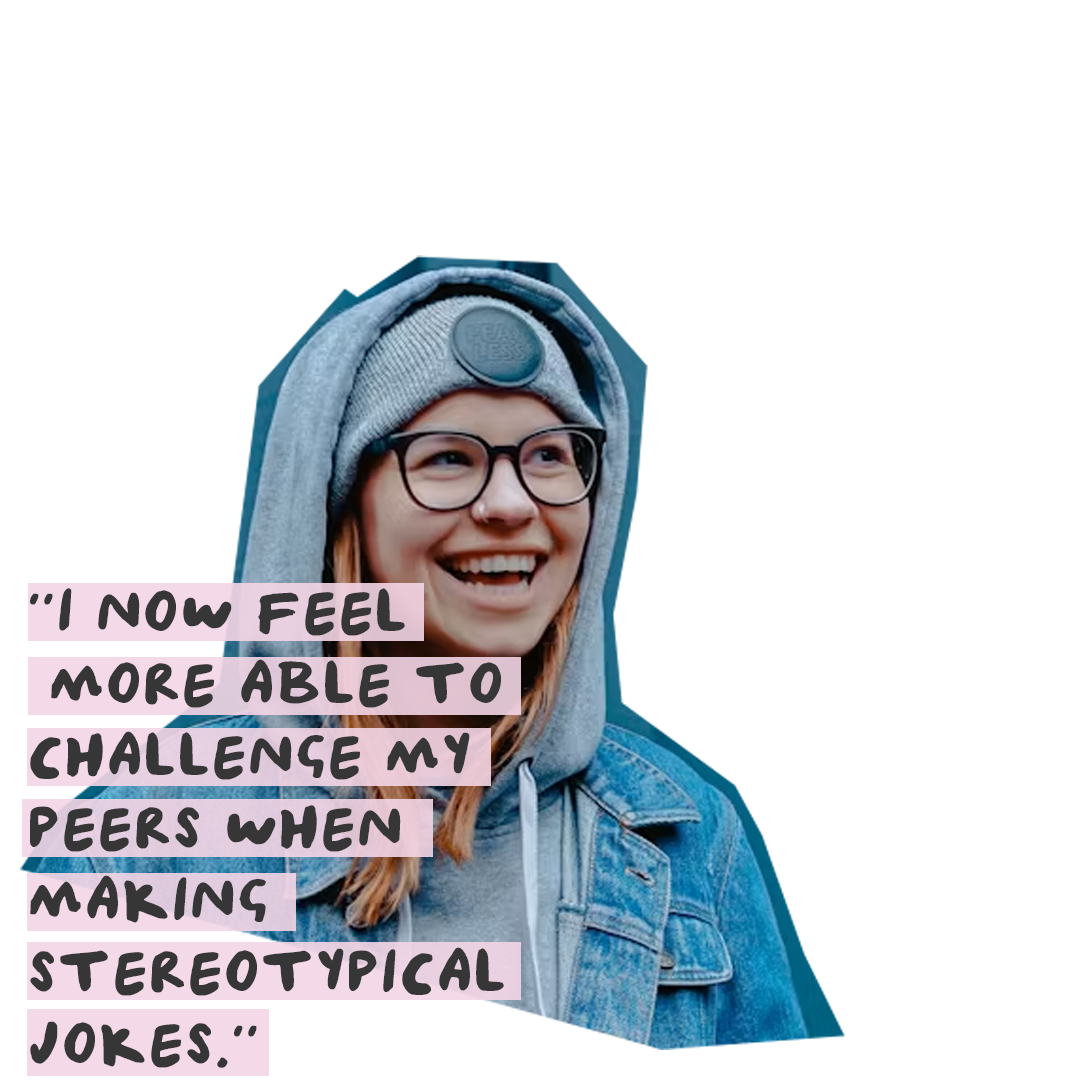Transformative RSE workshops
We have designed a spiral curriculum that meets young people where they are at.
Alongside providing the information needed to stay healthy and safe, we give young people space for exploration and discussion, and signpost to further resources and services they may need.
Our workshops are age-appropriate, LGBTQIA+ inclusive and intersectional. This means we include and represent everyone, whilst recognising that systems of inequality in society intersect and affect people’s experiences of the world.
About how we might deliver
There are are a number of ways that we might work with your school:
Through an ongoing RSE programme of regular sessions over the course of a term
Through collapsed timetable / drop down days with multiple workshops (up to 30 students in each)
Through talks or assemblies to larger groups (up to 200 students in each)
Through remote sessions to multiple groups (no limit to number that can attend)
Our sessions usually range from 1-2 hours per topic (the longer the better!)
Strand 1: Identity
We help young people explore the physical and emotional changes they experience, fostering a positive sense of self so they can confidently express who they are and how they feel.
This workshop focuses on the changes that young people experience during puberty. We go through the various and diverse emotional, physical and social changes that a young person might experience. We share practical tips and tools of how young people might look after their minds and bodies during periods of change.
Strand 2: Consent
We empower young people to confidently navigate relationships and sexual experiences by focusing on mutual understanding, communication and boundaries, ensuring every interaction is built on Respect, Enjoyment, Comfort, and Safety (RECS).
This workshop focuses on consent in everyday life. We share why choice, freedom and capacity are essential components in decision-making. We invite young people to practise communication techniques to advocate for personal choices as well as understanding others’ boundaries. We introduce key language in a simple, fun way.
This workshop builds on Everyday Consent. We consider everyday consent, as well as romantic and sexual consent. We invite young people to practice communication techniques to advocate for personal choices as well as understanding others’ boundaries. We cover how respect, enjoyment, comfort and safety within sex are essential.
This workshop builds on Practising Consent. We invite young people to reflect on the ways in which consent is, and is not, presented in wider society. We examine sexual pressure and rape culture to consider how individuals might challenge harmful narratives within their everyday lives and relationships.
Strand 3: Intimacy
We prepare young people to navigate their sexual, romantic and platonic relationships with confidence and self-awareness, ensuring they can express their needs and desires in a way that respects themselves and others.
This workshop helps young people understand body image and consider how people’s relationships with their bodies can change over time. We explore the history of the body positivity movement and how beauty ideals, advertising and discrimination can affect people’s body image. We encourage young people to practise acceptance and gratitude.
This workshop focuses on our understanding of gender, sex, expression and identity. We invite students to critically reflect on the impact of gender stereotypes across history. We share ways in which stereotypes might be challenged, and support students to feel more confident to do so.
This workshop is specifically designed for Y12 and Y13 Leavers and supports them to skilfully navigate new and unknown experiences, like leaving home for the first time. We invite them to reflect on their comfort levels when it comes to new experiences and consider boundaries and communication techniques for partnered sex.
This workshop explores different types of relationships. We invite young people to reflect on healthy and unhealthy behaviours in relationships, how they might be able to identify these and where they might go for more support. We share strategies for building more supportive relationships with themselves and their friends.
This workshop explores intimate relationships and considers how our ideas of what sex ‘should’ look like are influenced by wider factors. We give a comprehensive overview of sex and bodily anatomy. We share how people can prioritise respect, enjoyment, comfort and safety during sex throughout their relationships.
This workshop covers information on sexually transmitted infections, contraceptives and sexual health clinics. We have a short and extended version. The extended version (90+ minutes) also includes information on pregnancy choices and sexual risks as well as allowing more time for activities, discussion and questions.
This workshop aims to remove the stigma surrounding pleasure and masturbation. We invite young people to consider intimacy, anatomy and that difference between bodies is totally normal. We encourage young people to reflect on the various things that bring them pleasure in life and commit to prioritising pleasure more.
This workshop focuses on safe, consensual and respectful communication online. We invite young people to consider the emotional impact that certain behaviour online can have on others. We share information on how consent and boundaries apply to online spaces and give examples of what to do when feeling unsafe online.
Strand 4: Digital
In a shame-free space, we equip young people with the critical thinking skills to navigate their online world safely, giving them the tools to build agency and autonomy in the face of digital pressures.
We equip young people with a critical lens to unpack the influence of pornography and wider media. This helps them to identify how digital representations of sex impact their feelings and behaviours towards themselves and others..
This workshop uses participatory methods to help young people build practical skills to navigate online relationships and sexual communication with confidence. We provide them space to respectfully discuss boundaries, understand their rights and explore how to communicate their needs in a digital space.

















